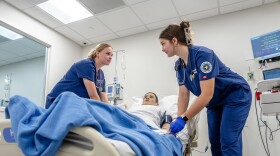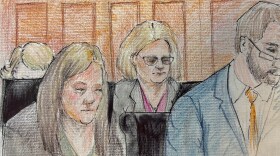The JobLines bus routes were meant to connect people in Milwaukee County to jobs in the suburbs. But these lines haven't functioned the way local leaders had hoped.
READ: As Milwaukee's JobLines Service Ends, What's Next?
Ridership was low and the financial burden to keep them running was too high. But the JobLines were created to solve an issue that remains a problem: connecting people who need work to the areas where there is work. So how do we move forward?
"It doesn't seem like we've gotten too far into trying some of the more creative things that some of the other metro areas [in the US] seem to be trying. There are definitely some standout examples from across the country of parternships with private entities to try to solve this problem and I think that's the kind of thing we could explore further in our area," says Kevin Muhs, executive director of the Southeastern Wisconsin Regional Planning Commission (SEWRPC).
He points to Centennial, Colorado, which solved a similar issue by using subsidized Lyft rides to help out commuters. Other cities have also relied on Uber or Lyft to help extend their public transit options, but this option is difficult to accommodate in Wisconsin.
READ: As Bus Extension To Waukesha County Ceases, JobLines Riders Weigh In
Funding for transit in Wisconsin comes exclusively from state and federal funds. Restrictions prevent municipalities from imposing special taxes to support transit.
There are also, Muhs says, "restrictions on how you use federal transit dollars, that basically disqualify using it on these sorts of services [Lyft, Uber, or other rideshare companies]."
READ: Waukesha County Supervisor Shares Why He Thinks The JobLines Service Didn't Work
Some of the issues in the Milwaukee-area stem from the fact that suburban and urban transit is run by each municipality. Muhs says that a regional transit agency could help connect these systems, but this kind of group would also face an uphill battle because of regulations in Wisconsin.
"There are options under state law to create transit commissions that go across municipal or county boundaries, but they are not able to generate their own revenue. So we would still have the same struggle of, we don't have enough funding to actually provide the level of service that maybe some people are desiring for the metro area. The concept of regional transit authorities typically does assume that there would be some sort of dedicated funding source," says Muhs.
READ: Lack Of 'Regional Perspective' For Milwaukee-Waukesha Transit Goes Back Decades
Both of these solutions would require legislative action to change existing Wisconsin laws, which could happen if there was the political will to do it. Muhs say there are also possible solutions that would involve private organizations with a stake in the success of public transit initiatives.
"There is an opportunity to look at: Who are the beneficiaries of anything we pursue, and see if there’s a way to marry maybe philanthropic interests and the businesses who are benefitting with labor force. As well as maybe a bit of either state or local contributions on a small level," he says.






